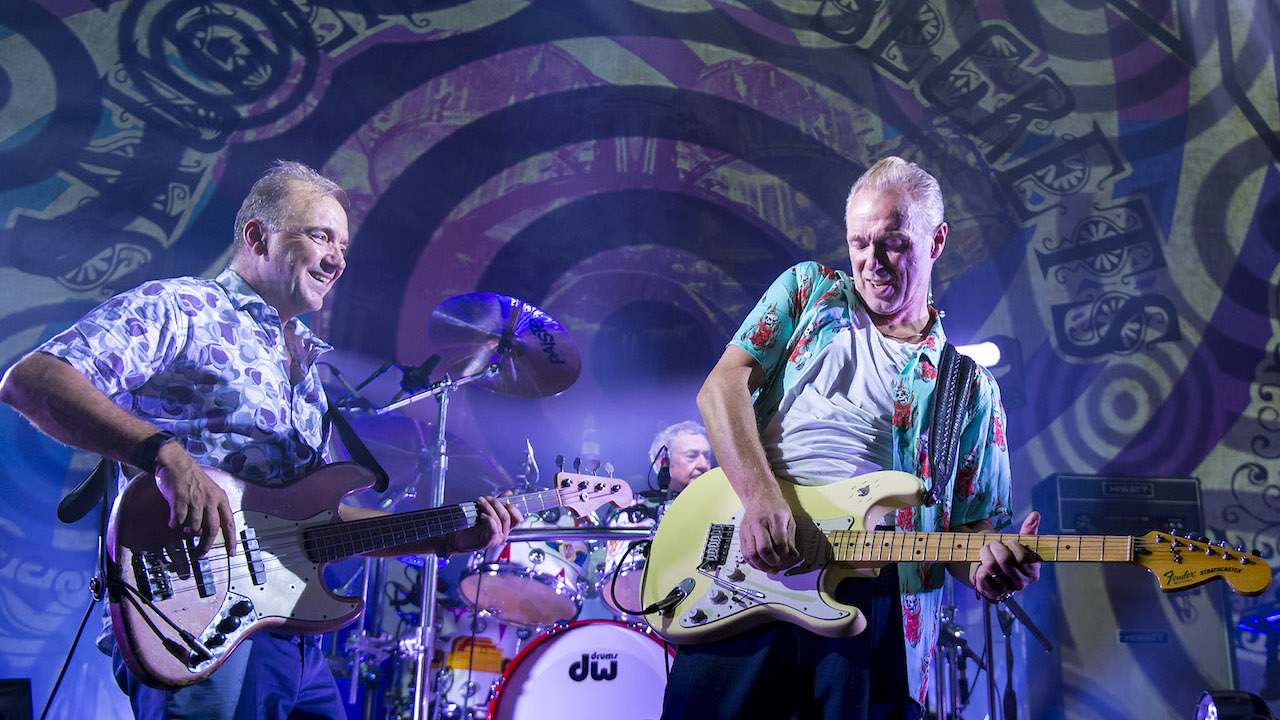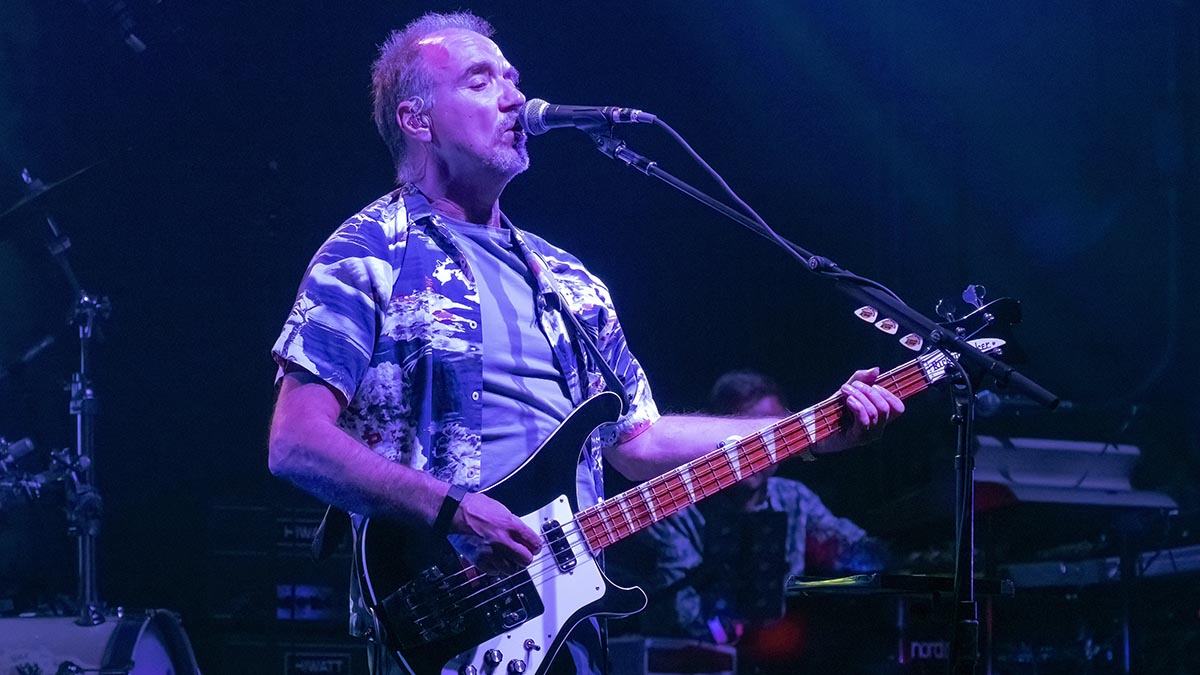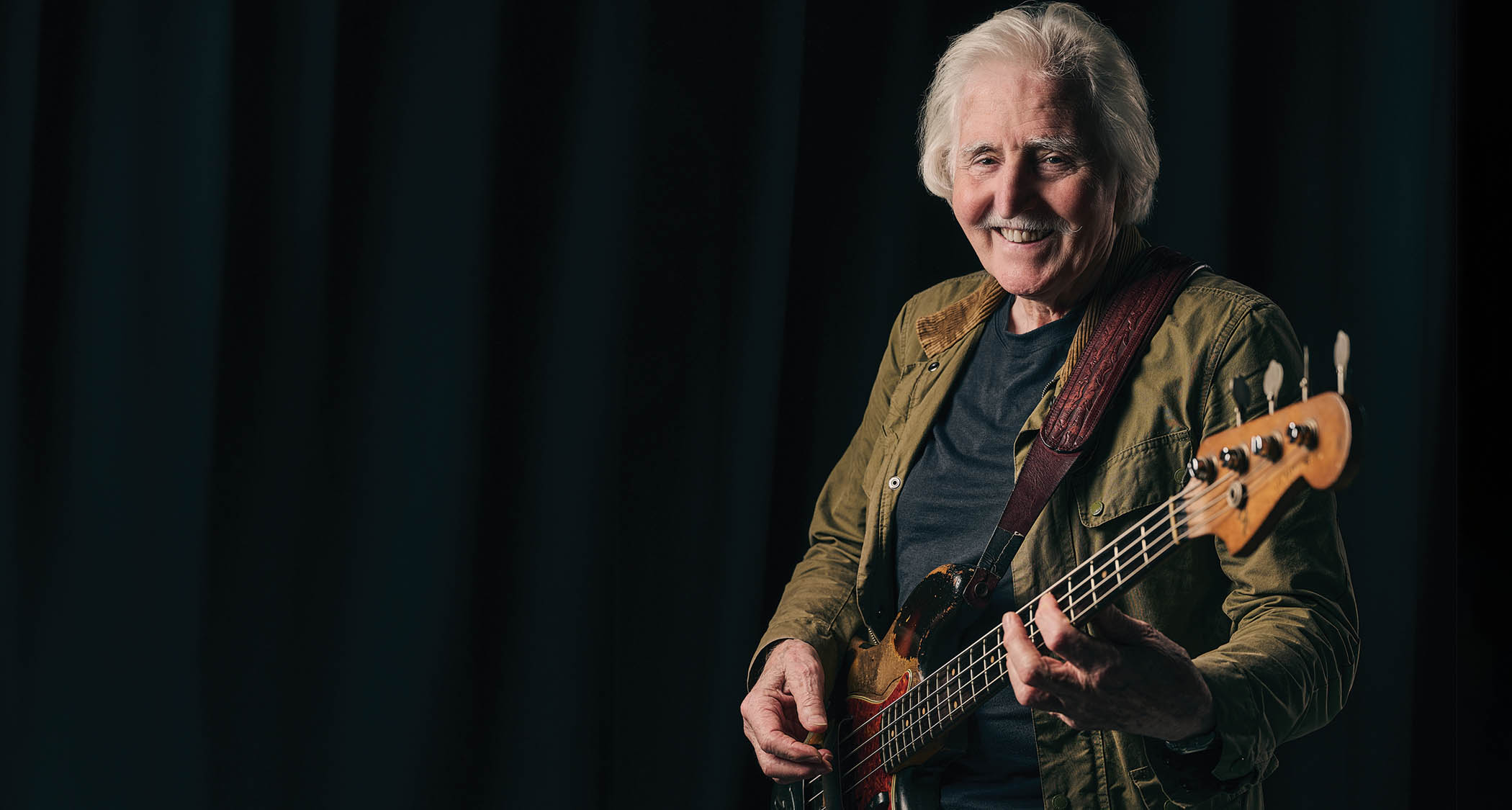Guy Pratt: “I always thought that the second I walked out the studio, the producer would be on the phone to Pino Palladino”
The session stalwart discusses his career as a sideman, gigging with Pink Floyd, and chatting to Noel Gallagher and Suzi Quatro for his music podcast, The Rockonteurs

All the latest guitar news, interviews, lessons, reviews, deals and more, direct to your inbox!
You are now subscribed
Your newsletter sign-up was successful
“Bass players are ten a penny, but a good wit is hard to find, so we hired him.” The ‘we’ refers to rock royalty Pink Floyd, and the bass guitar player in question is Guy Pratt. Guy became a household name when he joined Pink Floyd in the late ‘80s, but he also possesses a CV that includes Robert Palmer, Roxy Music, Madonna and Michael Jackson.
“I used to get terribly insecure whenever I’d get called for session work,” he says. “I always thought that the second I walked out of the studio, the producer would be on the phone saying, ‘Hello, Pino?’ But I must have been doing something right.”
Having already written a book and a one-man comedy show, Guy’s latest creative venture is a podcast with bandmate Gary Kemp (both are members of Pink Floyd drummer Nick Mason's Saucerful of Secrets). As a go-to destination for back stage anecdotes, The Rockonteurs offers up a fascinating collection of stories with guests ranging from Julian Lennon to Adam Clayton of U2.
In support of the first live recording of the podcast, Guy checked in with Bass Player to discuss his favourite guests and how he got the gig with Pink Floyd.

The Rockentours – just what kind of a show is it?
“The idea came from watching a DVD box set of The Old Grey Whistle Test while on a tour bus with Nick Mason. Nick had all these great personal stories about the people we were watching, which we would constantly ask him questions about. That’s really what the podcast is about. It's basically us asking all the questions that you'd love to ask if you met these people at a party, but without them telling us to get lost!”
When did you first meet Gary Kemp?
“We first met in Budapest in 1984. I was playing for Icehouse and he was there with Spandau Ballet. His manager called me when Gary was making his first solo album, which is when we really hit it off. We’ve since written a musical together, and then the gig with Nick Mason’s Saucerfull of Secrets came up, which is just beyond perfect. The Rockonteurs has really grown out of that.”
How much preparation goes into each episode of The Rockonteurs?
All the latest guitar news, interviews, lessons, reviews, deals and more, direct to your inbox!
“It’s funny, because if if I’m playing bass for someone then I usually like the idea of just walking into the room and seeing what happens, but for The Rockonteurs we really swat up. It’s great when you can surprise a guest with something they’ve otherwise forgotten about. I used to write notes, but I’d never look at them and it would just annoy me afterwards. I’d always look back at them and go, ‘Fuck! Why didn't I ask them about that?’”
Who’s been the most intimidating guest?
“I remember Suzi Quatro being a little feisty, but I have never been so scared of interviewing anyone in my life as I was when we interviewed Noel Gallagher. I knew that Noel can have this thing about sidemen, and you know how chippy he can be in interviews. I was so scared that I actually sent Johnny Marr a message a few days before in the hope that he would soften him up a bit!”
The episode with Steve Diggle from The Buzzcocks and Glen Matlock from The Sex Pistols was recorded live at the Screen on the Green?
“So there was a legendary gig in 1976 when the Sex Pistols, the Clash and the Buzzcocks all played at this venue in North London, which is the Screen on the Green. Gary was actually there at the gig, and I wasn’t! So it’s become a sort of touchstone. It was also Gary's chance to absolutely complete my humiliation and remind people that I missed it, as he did when we interviewed Paul Simonon.”
What was your game plan when you were first starting out back then?
“I didn't have one! I never had a game plan or anything like that – I just fell into it. One of the most important things that happened to me was being spotted by Robert Palmer, which was very early on when I was touring with Icehouse. He happened to be stood at the side of the stage, saw me playing bass and then invited me to The Bahamas to write with him. I ended up playing bass on his albums, which led to playing with Bryan Ferry, but I never wanted to be a studio bass player. I was always a band player and I still like being in a band situation.”
How did you get the call to record with Madonna and Michael Jackson?
“The engineer on Madonna was Bill Bottrell who went on to produce Michael Jackson. Michael Jackson heard Madonna’s Like a Prayer and said he really liked the bass player and as Bill knew I was in town he said, 'Let’s get him in’ and so I did Earth Song as well. It was all word of mouth.”
How did you get the gig with Pink Floyd?
“I was on David Gilmour’s radar for some time. I knew him through Dream Academy, because I'd always played with them, and he also used to play a lot with Bryan Ferry when I was working on Bryan's Bete Noire album. Oh, and Tony Levin wasn’t available.”
Were the mid-‘80s a good time for the bass guitar?
“It was a fantastic time for bass. Every time a record came out with Tony Levin or Pino Palladino on it, they were doing something you hadn’t heard before.”
What advice would you give aspiring bass players today?
“Your ability to get on with the job and to get on with people is as important as your ability to play bass. Most bass players are far better than I am, but there’s a personality thing going on as well, so I always try and bring a good vibe to the gig: ‘We can get so-and-so, or we can get Guy.'”

Listen to Rockonteurs with Gary Kemp and Guy Pratt.

Nick Wells was the Editor of Bass Guitar magazine from 2009 to 2011, before making strides into the world of Artist Relations with Sheldon Dingwall and Dingwall Guitars. He's also the producer of bass-centric documentaries, Walking the Changes and Beneath the Bassline, as well as Production Manager and Artist Liaison for ScottsBassLessons. In his free time, you'll find him jumping around his bedroom to Kool & The Gang while hammering the life out of his P-Bass.

